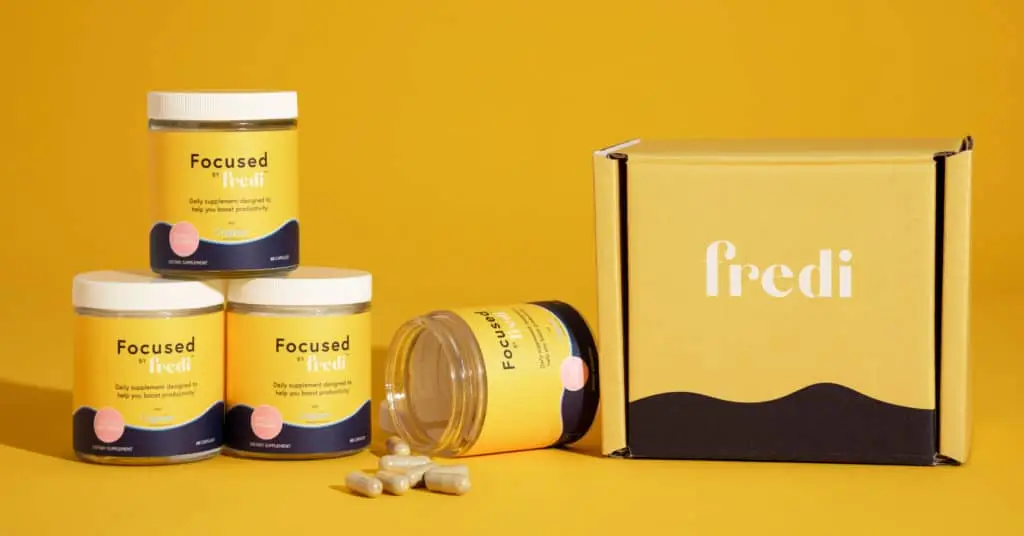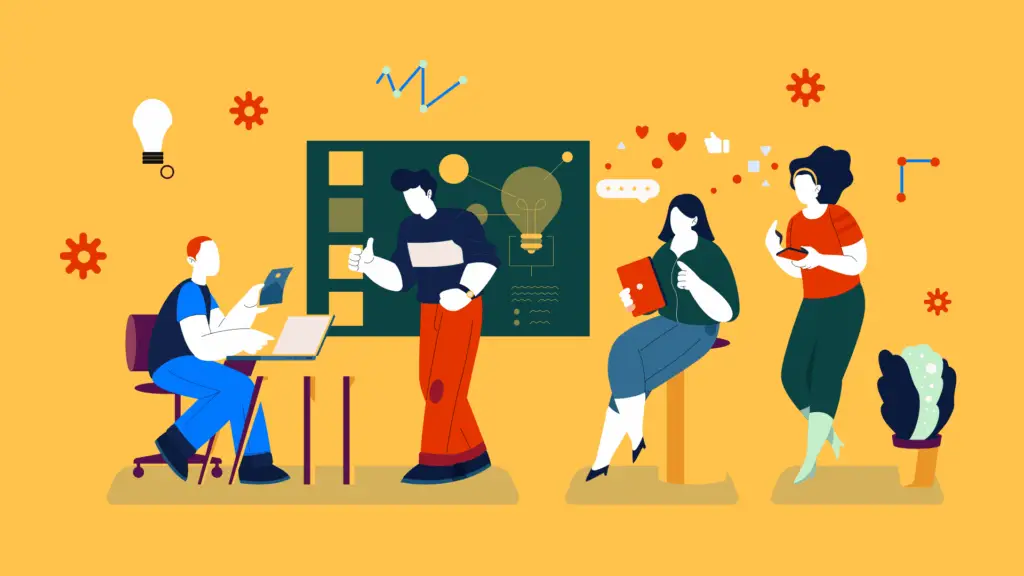In this article, we’ll show you how to approach your packaging design like the world’s most forward-thinking brands, so you too can showcase your values and show your dream customers you mean business.
The fundamentals of packaging design
Bad packaging design ignores that packaging is an integral part of your overall brand identity. Getting packaging right will make your brand stand out in a sea of competition.
Before we look at the things you can do to take things up a notch, we’ve got to assess the basics:
Make it functional
Of course, the main purpose of brand packaging is to protect the product in transit and on shelves.
It needs to be robust enough to handle people picking it up or moving it while keeping the contents intact.
You’ll want to make sure you include instructions, contact information and any relevant information that the customer may need, too. Don’t force them to work hard for the product, they won’t.
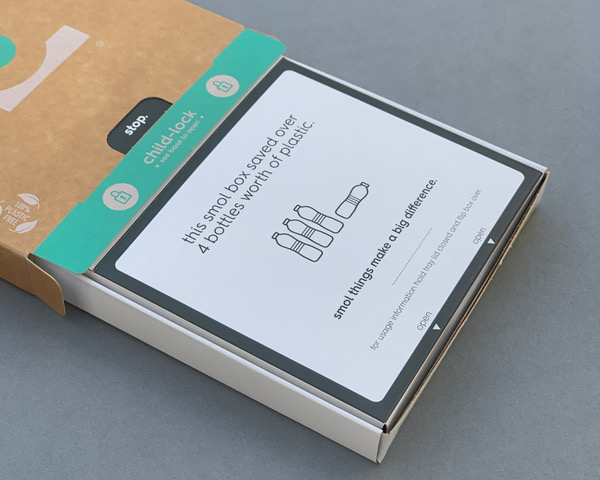
Inspired by: smol plastic free child-safe laundry capsule pack.
Appeal to the eye
Don’t leave it to chance that your customer will know it’s you. You have to earn that level of recognition. And to do that, you need to be consistent with your branding.
Keep your design clear and easy to understand, but include your brand colours (or at least one of them), brand fonts and logo or submark to build on customer awareness.
Not every product in your wheelhouse needs to look the same, but there should be a consistent thread running through them all to tie back to your brand. Like personal care brand Native, each stick has a unique color to match the scent, but each product has the same logo, font, and minimal layout, making it instantly recognizable.
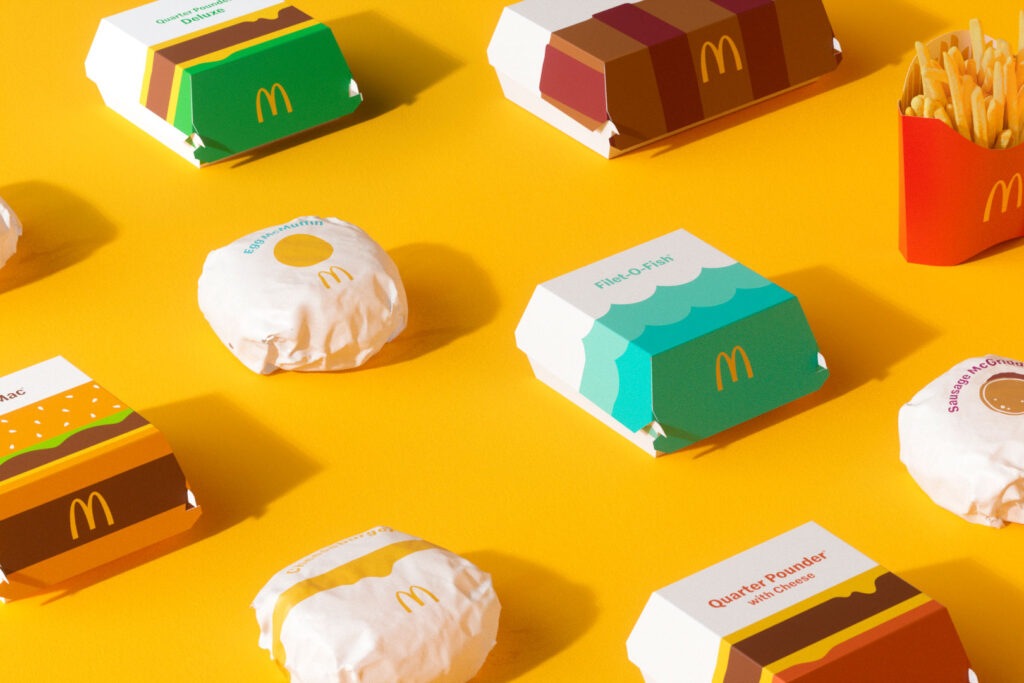
Inspired by: McDonald’s playful new packaging design.
Design beyond the trends
We regularly see trends emerging within brand packaging design – large eccentric fonts, bold colors, minimalism – but the most iconic and memorable brands don’t design for the trends. Because trends change.
Instead, design with social movements in mind to reach your audience on an emotional level. Where are they right now, what are they concerned about?
Right now (for good reason), there is a push toward more sustainable and planet-friendly design. The Economist found that consumer search for ‘sustainable goods’ has risen globally by 71% in the past 5 years.
If your packaging (or product, for that matter) is virgin plastic, doesn’t address the consumer’s concerns, or causes negative environmental impact, it won’t convert as well.
Showcase your values
The Economist also found that 72% of those surveyed said they were “actively buying more environmentally friendly products than they did five years ago”.
It’s important –in fact, it’s critical– that brands today do their bit to reduce carbon emissions and global warming. And packaging plays an important role in this. Consumers now want to know where you stand.
What is it that you believe in? What do you stand for? Showcase this on and with your packaging.
Shoe brand TOMS does this by explaining their ‘shoes for tomorrow’ initiative on their packaging. For each pair of shoes purchased, they donate a pair to a child in need. Plus, their packaging is made from 80% recycled materials that are sourced from 100% sustainably managed forests.
Lead with emotion
As with any design project, human-first design will make you stronger. You need to understand your target audience, their preferences, budgets and values.
Instead of designing purely for functionality and usability (although both important), design for emotional connection, using your ideal customer avatar as your guiding light.
How do you want them to feel?
Empowered? Educated? Excited?
Boxed Water’s packaging makes the user find a connection between plastic packaging and their daily water consumption. It makes a regular customer feel intrigued and curious, and a conscious consumer feel supported.
The design challenges the status quo by opting for cardboard (renewable) while mimicking the shape of juice or milk cartons (recognizable).
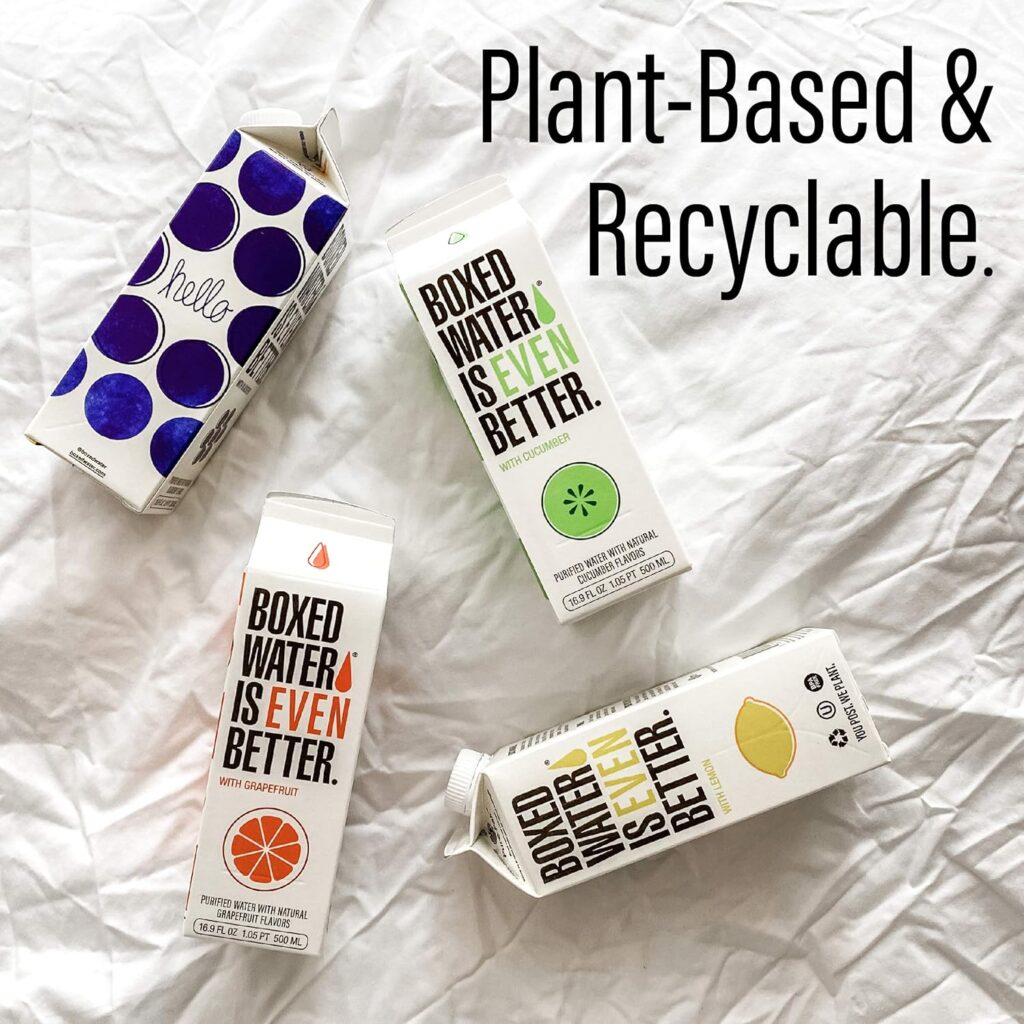
Inspired by: Boxed water is better, sustainable by design.
Consider new materials
Bioplastics, mushroom styrofoam, recycled materials… there are many new innovations in packaging materials to explore. It’s no longer acceptable to default to unsustainable, non-renewable options, so strive to think outside the box.
Consider how your design is impacted by newer materials. Vegetable inks and biodegradable textures will play a role in shelf longevity and aesthetics, so need to be accounted for at the design stage.
Vitable are a great example of innovative materials, using compostable sachets made from plant-based cellulose from eucalyptus trees!
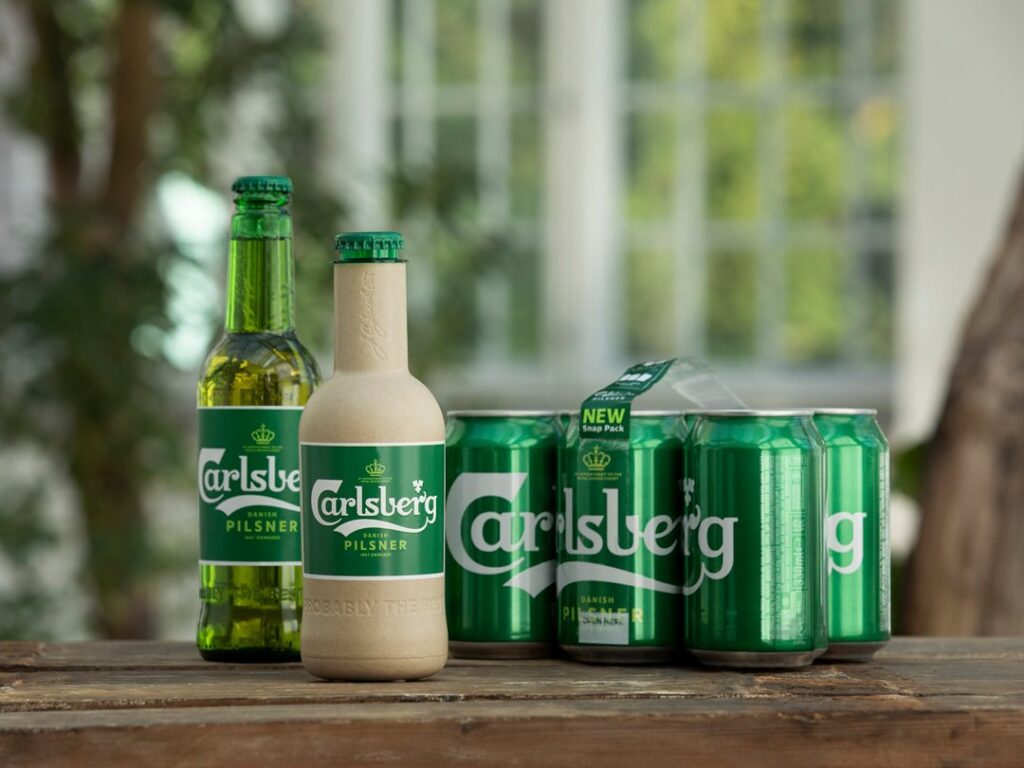
Design for an immersive experience
The role of your brand packaging is to delight, surprise and give something to your customer. Both practically and emotionally.
Design for people, but design to bring the people into your brand universe, too.
How can you ensure that your product is as exciting when it arrives at their home? How does the packaging look when it’s removed from the shelves? How does the packaging look when it’s on the shelves?
Forward-thinking brands consider every possible context for their packaging. From the surrounding POS (point of sale) to the merchandising, to the packaging when it’s in the consumer’s home.
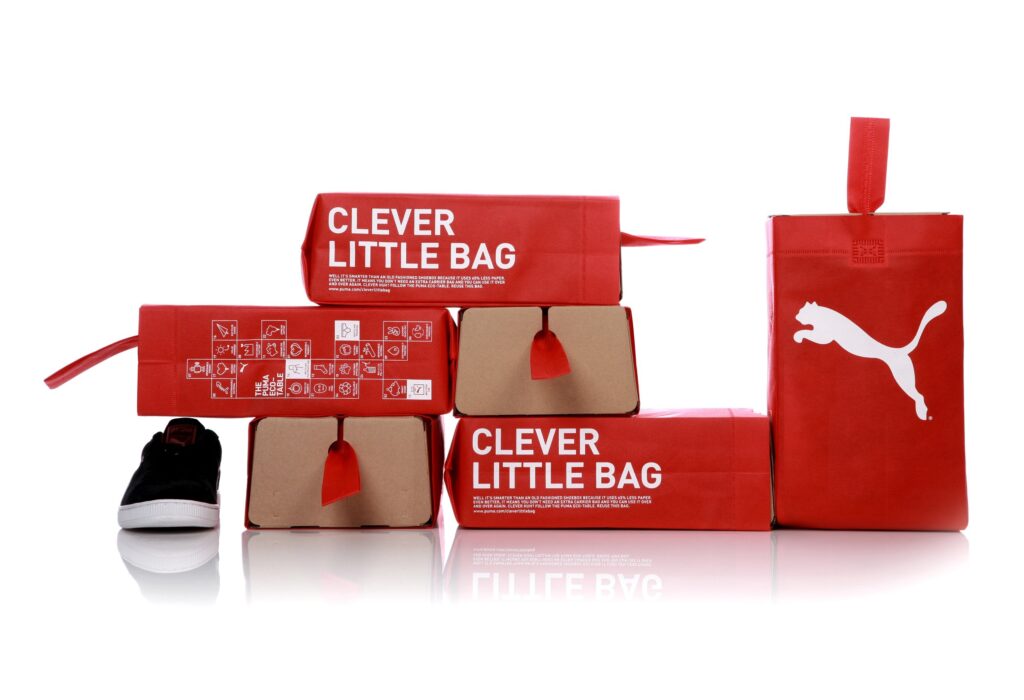
Have you considered any of these within your own brand packaging designs?
If you need support to bring your innovations and brand values to life, fill out this quick form to book a chat with our design team. We’ll match you up with a Design Manager who will put our world-class designers to work (for you).
Not sure? Check out our past packaging projects.
